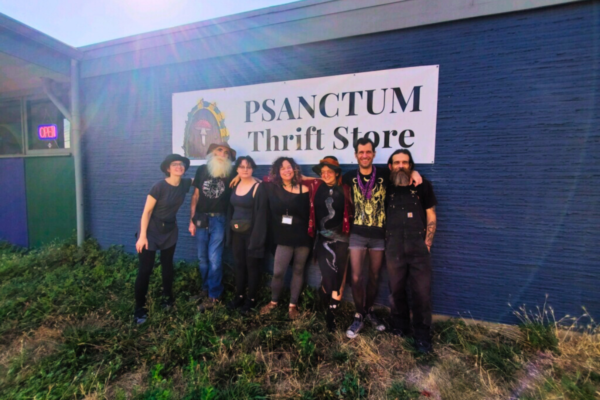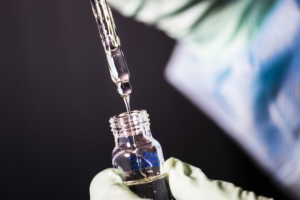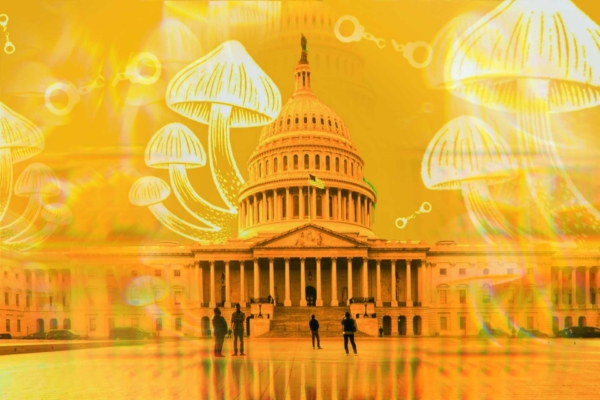
This week has seen tremendous progress in the fight for psychedelics reform and research, with Oregon, Minnesota, California and Nevada leading the way in America alongside Britain’s impressive international initiatives.
A psychedelic first in the United States
By the end of this month, Oregon students will graduate from a program that will eventually allow them to use psychedelics (psilocybin), legally.
“It’s a special day,” said InnerTrek program director Tom Eckert on March 10. “These graduates will be stepping into a brand-new profession here in Oregon that we’ve laid out through Measure 109.”
InnerTrek is one of many state-approved psilocybin training programs that have been established since measure 109 was passed last year. As Eckert, the architect and chief petitioner of Measure 109 explained, that includes in-person intensives, online training, home groups and practicum.
- businesses producing the mushroom
- labs testing the product
- for service centers administering psilocybin
- for the facilitators working with the clients
Angie Allbee, manager of the Psilocybin Services Section, a part of the Oregon Health Authority, explained, “We knew that there would be lots of applications coming in and that there might be some delays, so we do think we’re getting closer to licensing,” she said. “We have received eight facilitator applications that have been submitted for our review and we can see 118 facilitator applications pending in our system.”
Minnesota joins growing list of states interested in psychedelic research
A Minnesota House committee has recently viewed a bill to establish a task force to study and advise on the potential legalization of psychedelics like psilocybin, MDMA and ibogaine.
As lawmakers in the state continue to advance a measure to legalize marijuana, the House Health Finance and Policy Committee agreed to pause further action on the psychedelics reform bill, sponsored by Rep. Andy Smith (D).
“We’ve seen many, many studies across the medical community that show these drugs have incredible potential to help with various psychological disorders— whether it’s addiction, whether it is OCD, depression, seasonal depression, trauma health,” Smith said. “There’s a wide range of issues that are incredibly helped with these medicines, and that’s why I think we should really start to look seriously at legalizing these drugs in Minnesota.”
If passed, the bill would see a Psychedelic Medicine Task Force established to “advise the legislature on the legal, medical, and policy issues associated with the legalization of psychedelic medicine in the state.”
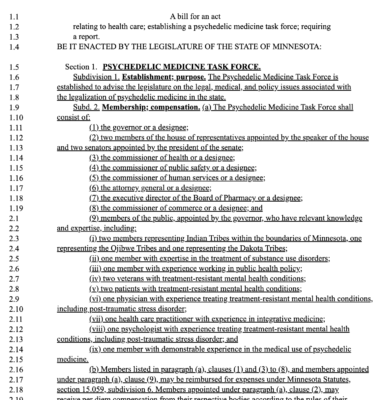
The 23-member task force must consist of officials and experts, including the governor or a designee, the health commissioner, the state attorney general or a designee, two tribal representatives, people with expertise in substance misuse treatment, public health policy experts, military veterans with mental health conditions and more.
Task force members would be required to “survey existing studies in the scientific literature on the therapeutic efficacy of psychedelic medicine in the treatment of mental health conditions, including depression, anxiety, post-traumatic stress disorder, and bipolar disorder, and any other mental health conditions and medical conditions for which a psychedelic medicine may provide an effective treatment option,” according to the bill text.
“Psychedelic medicine may include but is not limited to the use of 3,4-methylenedioxymethamphetamine (MDMA), psilocybin, mescaline, LSD, bufotenine, DMT,5-MeO-DMT, 2C-B, ibogaine, salvinorin A, and ketamine,” it continues.
The task force would need to further assess whether any of the mentioned substances are effective in the treatment to any of those conditions. They would then compare that efficacy to conventional drug treatments and develop a plan that considers the “statutory changes necessary for the legalization of psychedelic medicine.” The body would also need to consider state and local regulation of the substances, as well as federal policy “with a focus on retaining state autonomy to act without conflicting with federal law.”
“The task force shall submit two reports to the chairs and ranking minority members of the legislative committees with jurisdiction over health and human services that detail the task force’s findings regarding the legalization of psychedelic medicine in the state, including the comprehensive plan developed under subdivision,” it says. “The first report must be submitted by February 1, 2024, and the second report must be submitted by January 1, 2025.”
Meanwhile, Minnesota is far from the only state where legislators are taking up psychedelics reform this year.
California Takes Major Step Towards Passing Psychedelics Legalization Bill
A California Senate committee has approved a bill to legalize possession and facilitated use of several psychedelic substances.
Sen. Scott Wiener (D) last refiled the bill back in December of 2022, after it was essentially derailed late in the 2022 session.
The measure would legalize the “possession, preparation, obtaining, transfer, as specified, or transportation of” specific amounts of psilocybin, psilocyn, DMT, ibogaine and mescaline for personal or facilitated use. Notably, “synthetic” psychedelics like LSD and MDMA would not be legalized, unlike the provisions of the previous version of Wiener’s legislation.
It would also repeal state law prohibiting “any spores or mycelium capable of producing mushrooms or other material which contain psilocybin or psilocyn.” The state ban on drug paraphernalia for the covered substances would also be repealed under the legislation.
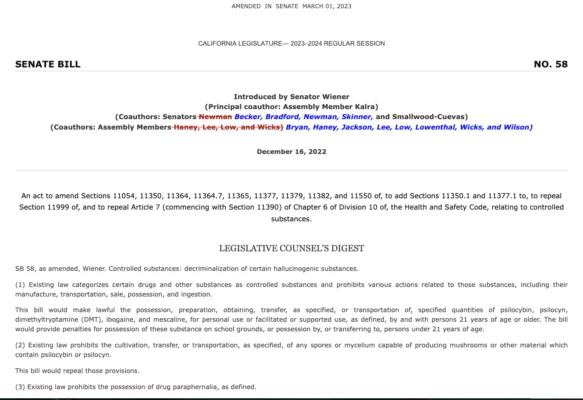
Note that it excludes synthetic psychedelics like LSD and MDMA from the list of substances that would be legalized and focuses only on those that are derived from plants or fungi. That aligns the legislation more closely with the bulk of local psychedelic decriminalization measures that have been enacted in cities across the U.S. in recent years.
“Listen, I would love to have them included.I think they should be included,” Wiener said. “But we also need to be able to pass a good bill. And, unfortunately, there are a lot of stereotypes about LSD and MDMA, and so we decided, let’s get it passed for non-synthetics—which will still be a major game changer with psilocybin, ibogaine, ayahuasca and others—and then we can come back later to address synthetics.”
Peyote is also excluded from the bill’s legalized substances list, which is responsive to concerns raised by some advocates and indigenous groups about the risks of over-harvesting the vulnerable cacti that’s been ceremonially used.
The “allowable amount” section of the bill prescribes the following psychedelics possession limits:
DMT—2 grams
Ibogaine—15 grams
Psilocybin—2 grams, or up to 4 ounces of “a plant or fungi containing psilocybin”
Psilocyn—2 grams, or up to 4 ounces of “a plant or fungi containing psilocyn.”
Beside personal possession being legalized, the bill would also specifically provide for “group counseling and community-based healing” involving the entheogenic substances.
“These are not addictive drugs. And these are drugs that have significant potential in helping people to navigate and to become healthy who are experiencing mental health, challenges substance use challenges,” Wiener said at Tuesday’s hearing.
Read: California Takes Major Steps Towards Passing Psychedelics Legalization Bill
Neighboring Nevada also taking action on psychedelic policy
Nevada lawmakers have introduced a bill to legalize psilocybin and promote research into the psychedelic, as well as encourage studies of MDMA.
The legislation from Sen. Rochelle Nguyen (D) is primarily meant to streamline the process of studying psilocybin and MDMA. But it also contains a section that removes criminal and civil penalties for adults who possess, cultivate, or share up to four ounces of psilocybin.
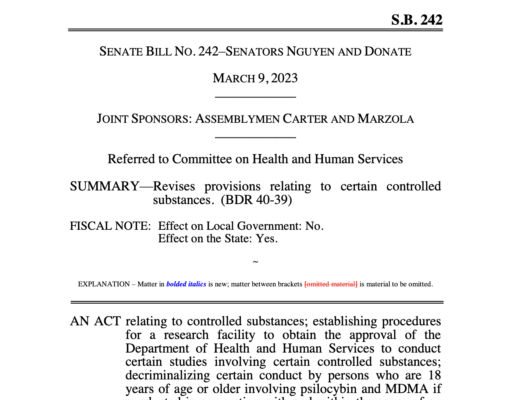
Under the measure, researchers would be able to apply to study either of the psychedelics to the state Department of Health and Human Services.
Regulators would need to develop rules on criteria for approving those applicants.
The research part of the legislation also provides legal protections against state-level prosecution for people who are involved in such studies, including the participants and those conducting the trials.
Studies would have to center on the potential mental health applications of the substances, such as the treatment of depression, anxiety, post-traumatic stress disorder (PTSD), bipolar disorder and migraines.
Beyond research, another section of the bill would broadly legalize psilocybin for adults 18 and older.
It says that the possession, consumption, cultivation, manufacturing, sharing, testing and delivery of psilocybin would not constitute “a violation of any law, ordinance, rule or regulation of this State or any political subdivision of this State.”
The whereas section of the measure states that Nevada “has a high prevalence of adults with behavioral health conditions,” and studies show that psilocybin and MDMA have “efficacy and safety in the treatment of a variety of behavioral health conditions.”
Rep. Nguyen stated, “We have a mental health crisis in our state. Our current laws are holding us back from potentially life-changing and life-saving treatments, which is why I just introduced SB42 to legalize psilocybin research in Nevada.”
More positive DMT research coming from Britain
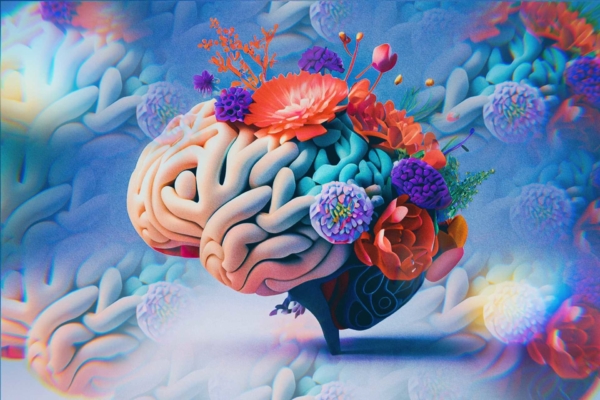
In a study at Imperial College London, detailed brain imaging data from 20 healthy volunteers revealed how the potent psychedelic compound, DMT (dimethyltryptamine), alters brain function. During the immersive DMT experience there was increased connectivity across the brain, with more communication between different areas and systems. The changes to brain activity were most prominent in areas linked with ‘higher level’ functions, such as imagination.
The study, published in the journal PNAS, is the first to track brain activity before, during and after the DMT experience in such detail.
Dr Chris Timmermann, from the Centre for Psychedelic Research at Imperial College London, and first author on the study, said: “This work is exciting as it provides the most advanced human neuroimaging view of the psychedelic state to-date.
“One increasingly popular view is that much of brain function is concerned with modelling or predicting its environment. Humans have unusually big brains and model an unusually large amount of the world. For example, like with optical illusions, when we’re looking at something, some of what we’re actually seeing is our brain filling in the blanks based on what we already know. What we have seen with DMT is that activity in highly evolved areas and systems of the brain that encode especially high-level models becomes highly dysregulated under the drug, and this relates to the intense drug ‘trip’.”
The fMRI scans found changes to activity within and between brain regions in volunteers under the influence of DMT. Effects included increased connectivity across the brain, with more communication between different areas and systems. These phenomena, termed ‘network disintegration and desegregation’ and increased ‘global functional connectivity’, align with previous studies with other psychedelics. The changes to activity were most prominent in brain areas linked with ‘higher level’, human-specific functions, such as imagination.
The researchers highlight that while their study is not the first to image the brain under the influence of psychedelics or the first to show the signatures of brain activity linked to psychedelics, it is the first to combine imaging techniques to study the brain during a highly immersive psychedelic experience. They explain the work provides further evidence of how DMT, and psychedelics more generally, exert their effects by disrupting high level brain systems.
The Imperial team is now exploring how to prolong the peak of the psychedelic experience through continuous infusion with DMT, and some are also advising on a commercially run trial to assess DMT for patients with depression.
Check out this study for more information on DMT and its potential:
Read: Scientists Reveal How DMT Affects the Brain’s Advanced Functions
‘Human brain effects of DMT assessed via EEG-fMRI’ by Christopher Timmermann et al. is published in the journal PNAS.
Pro-psilocybin reforms have been gaining steam, this time gaining money as well
A political action committee (PAC) created to advocate for psychedelic medicine use in the country aims to elect leaders to support pro-psilocybin reforms.
The PAC also wants to secure federal funding for more education and research on psychedelic medicine use, aiming to raise $10 million in its first year as well.
In an interview with NBC news, Ryan Rodgers (co-founder and executive director of the PAC), said, ““We have to convince a historically stubborn audience around psychedelics that it’s not the 1960s.”
“People aren’t going to stare into the sun for their eyes to blow out. People aren’t going to jump off a building,” he said. “This is about healing trauma. It’s not about recreation.”
As we’ve seen in about a dozen individual states over the past 3 years, the Biden administration has explored the possibility of launching a task force that focuses on the research and study psychedelics in the hopes of the Food and Drug Administration approving the therapy use of the drugs in the future.
Earlier this month, Reps. Lou Correa (D-Ca.) and Jack Bergman (R-Mich) relaunched the Congressional Psychedelics Advancing Therapies (PATH) Caucus, as a path to “address ways to alleviate the national mental health crisis through psychedelic science and research.”
The group also said it hopes to secure buy-in from both Republicans and Democrats for their latest push



